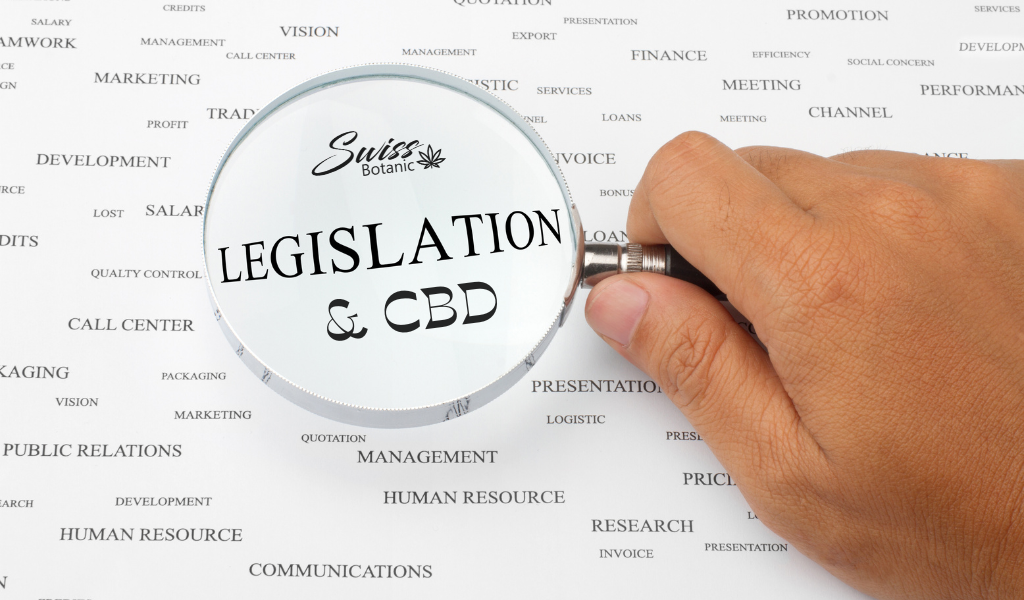The new legislation on CBD in France, effective from 2023, marks a significant step in the evolution of regulations surrounding this hemp-derived substance. This update comes in a complex historical context, where CBD, or cannabidiol, is the subject of regular debate and change.
Historical background to CBD legislation
The historical context of legislation on CBD flowers flowers in France provides an essential overview of the regulatory transformations surrounding this hemp-derived substance. Recent years have seen a rise in CBD’s popularity due to its potential health benefits. However, this popularity has also given rise to concerns about safety, product quality and the need for more precise regulations.
The rapid evolution of the market has led the authorities to reconsider and adjust existing legislation to better regulate the production, distribution and consumption of CBD. The need for legal clarification has become imperative, as CBD has taken center stage in the wellness industry.
Over time, debates have emerged on crucial issues such as the permitted THC level, extraction methods, and the classification of CBD-derived products. These debates played a key role in the formulation of the new legislation, seeking to balance the promotion of innovation in the CBD industry while ensuring consumer safety and compliance with quality standards.
Evolution of CBD laws
The evolution of CBD laws in France reflects a dynamic process of adjustments aimed at striking a delicate balance between consumer needs and public health concerns. Over time, intensive debates have emerged around various facets of CBD regulation, including the consumption of CBD flowers, the variety of derivative products available on the market, and the level of THC allowed in these products.
These discussions reflected the need to take into account the diversity of consumer needs while guaranteeing safety and quality standards. Adjustments to CBD laws have also sought to clarify the legal aspects surrounding the production, distribution and consumption of CBD products. This evolutionary process illustrates the authorities’ commitment to adapting legislation to meet the constant evolution of the CBD industry and changing consumer expectations.
Key decisions and their impact
Some key decisions, notably the adjustment of the THC limit to less than 0.3%, have had a significant impact on the CBD industry in France. These regulations have been put in place to establish clear parameters governing the production and distribution of CBD products, while maintaining an acceptable level of safety. However, these choices have not only set standards; they have also created substantial challenges for the sector’s producers and distributors.
The major impact of these decisions has been the need for industry players to adjust their practices to ensure compliance with the new regulations. Growers had to adapt their cultivation, processing and quality control methods, while distributors had to review their stocks to ensure that products scrupulously complied with THC limits now below 0.3%. These changes have created a complex but necessary regulatory landscape for the CBD sector in France.
Details of the new CBD regulations
The recent introduction of CBD regulations in France covers various aspects of the industry, from production to sales. For consumers, this means greater transparency and higher quality standards for CBD products. Growers must comply with THC limits of less than 0.3%, adapt their cultivation and processing methods, and guarantee rigorous quality controls.
For retailers, the new regulations mean adjustments to inventory management, clear labelling of CBD products, and strict compliance with government standards. These regulatory details have been introduced to create a safe and transparent environment for consumers, while promoting legality and efficiency within the CBD industry in France. The overall aim is to reconcile the potential benefits of CBD with compliance with quality and safety standards, ensuring a positive experience for users.
What’s new for consumers
With the new CBD legislation, consumers need to be aware of significant changes that directly impact their shopping and consumption experience. Stricter labeling rules require more detailed information on CBD products, including cannabidiol (CBD) concentration, THC content, ingredients, and instructions for use. This enables consumers to have a clearer understanding of the products they buy, and to make informed choices according to their needs.
Product quality is also more closely regulated, giving consumers greater assurance of the purity and origin of CBD products. Cannabidiol concentrations are closely monitored to avoid significant deviations and ensure a consistent, reliable experience.
In short, the new legislation aims to create a safer and more transparent environment for consumers, by raising standards of quality, information and compliance in the CBD industry in France. These changes are designed to boost consumer confidence in their choice of CBD products and promote responsible consumption.
Implications for retailers and producers
The new CBD regulations have major implications for retailers and growers operating in France. The changes affect various aspects of the industry, from production to sales, with the aim of setting higher standards and guaranteeing consumer safety.
Producers of CBD flowers, CBD oils oils and other derivatives must comply with the new production requirements, ensuring that their methods meet established standards. This includes growing hemp under specific conditions, controlling THC levels (<0.3%), and implementing good manufacturing practices.
Retailers, for their part, are bound by stricter sales regulations. This includes more detailed labeling requirements, clear information on product composition, and greater transparency for consumers. Failure to comply with these rules may result in legal consequences, including financial penalties and the closure of non-compliant establishments.
In short, retailers and producers need to adapt to the new regulatory requirements to stay on the market legally and ensure the quality of the CBD products they offer.
Consequences of the new CBD legislation
The introduction of new CBD legislation in France has brought with it a significant set of benefits and challenges for the industry as a whole. On the positive side, these stricter regulations aim to enhance transparency, product quality and consumer safety. Stricter standards for hemp cultivation, cannabidiol concentration and labeling are intended to establish a more reliable and compliant industry.
However, these changes also bring their own challenges. The costs involved in adapting to the new standards can be a financial challenge for many players in the sector, especially small-scale producers. What’s more, the need to comply with stricter rules may mean a period of adjustment and transition for the industry as a whole.
Overall, the new legislation seeks to balance the growth of the CBD industry with consumer protection and compliance with established standards. The long-term effects of these changes will depend on how industry players adapt and respond to the new regulatory parameters.
Benefits and challenges for the CBD sector
The new CBD legislation in France brings with it a series of benefits and challenges that are shaping the future of the sector. The benefits include increased industry standardization, boosting consumer confidence. Regulatory clarity provides a solid foundation for market growth, paving the way for more transparent and responsible business practices.
However, these advantages come with substantial challenges. Players in the CBD sector are faced with the need to invest in practices that comply with the new regulations, which can entail significant up-front costs. In addition, ongoing consumer education is crucial to raise awareness of regulatory changes and new quality standards, fostering a deeper understanding of CBD products.
Overall, the potential benefits of the new legislation offer a promising prospect for a more mature, legally compliant CBD sector, while the challenges require proactive adaptation to ensure the industry’s sustainability and prosperity.
Future prospects and expected developments
Future prospects for the CBD sector in France are intrinsically linked to expected developments. Potential adjustments to legislation, guided by scientific advances and feedback, could shape the industry. Ongoing research into the effects of CBD, new hemp varieties and technological innovations will play a crucial role in the evolution of the CBD landscape in France. Industry players need to stay on top of developments to anticipate future trends and adapt to an ever-changing market.
Understanding the legal aspects of CBD
Understanding the legal aspects of CBD involves making a clear distinction between CBD, which is legal in France with a THC content of less than 0.3%, and THC, the psychoactive substance in cannabis. This distinction is crucial for consumers, producers and retailers, as it defines the legality, sale and consumption of cannabidiol-based products. In-depth knowledge of legal standards ensures informed participation in France’s ever-changing CBD sector.
Distinction between CBD and THC
The distinction between CBD, which is non-psychoactive, and THC, responsible for the psychotropic effects of cannabis, is crucial. In France, legislation recognizes this difference and authorizes CBD, provided its THC content remains below legal limits. This clarification is essential for consumers, establishing a solid legal basis for the production, sale and consumption of cannabidiol-based products.
Implications for public health and safety
CBD legislation in France aims to balance potential health benefits with public safety. Responsible consumption of CBD flowers and other products is encouraged to minimize risks.
In conclusion, the new CBD legislation in France reflects the continuing evolution of the understanding of hemp and its derivatives. Consumers, retailers and producers are called upon to adapt to these changes and contribute to a more transparent and secure CBD market.



